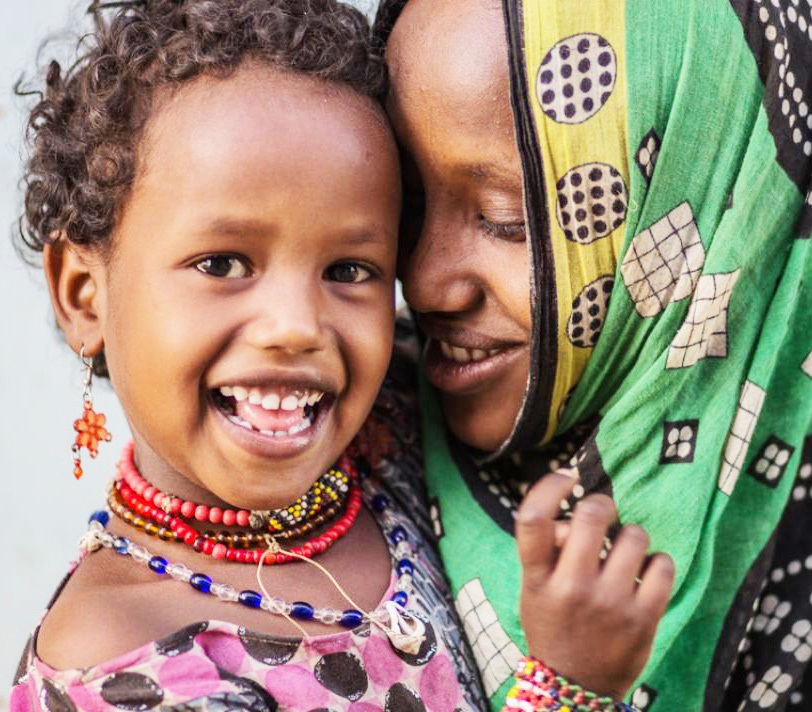
The 2019 UNICEF-supported multidimensional child poverty report revealed that 88 percent of children, approximately 36 million children that reside 94 per cent in rural and 42 per cent in urban areas, live in multidimensional poverty, lacking access to at least three social services such as health, nutrition, housing, education and water sanitation, according to UNICEF.
On 2019 annual report, UNICEF indicated that based on Sustainable Development Goal target 1.2, Ethiopia needs to reduce multidimensional poverty by at least four per cent each year to halve the poverty level by 2030. UNICEF is advocating for measuring both monetary and multidimensional poverty in the upcoming ten-year Perspective Plan of Ethiopia. Public spending for children is a challenge.
As to the report, a 2018 UNICEF-supported Sustainable Development Goals financing analysis estimated that achieving child-sensitive SDGs would require approximately 230 USD per capita, per year, far higher than the estimated investment of 40 USD per capita in 2018.With an inflation rate of 14.6 per cent reported by the International Monetary Fund in October 2019, meeting basic needs is becoming increasingly difficult for Ethiopian households.
The situation analysis of Children and Women in Ethiopia (SITAN) launched in October 2019 revealed an improvement in the overall situation of children compared to a decade ago; however, the slow rates of progress will not make it possible to achieve Sustainable Development Goals targets by 2030.
“Ethiopia’s Mini-Demographic and Health Survey 2019 indicates that stunting reduction has plateaued, with 37 per cent of children (5.6 million) under the age of 5 years being stunted, compared to 38 per cent in 2016 and 44 per cent in 2011. Although major strides were made in under-five mortality, neonatal mortality did not improve, it reached currently 30 per 1,000 live births, compared to 29 per 1,000 in 2016.” The report noted.
Despite improvements in school enrolment, transition from primary to secondary school is still low for boys and girls, due largely to high dropout rates across the primary cycle which is less than 6 out of 10 complete primary education. The 2019 UNICEF SITAN reported 2.6 million primary school children as out of school.
The Education Management Information System of 2018/19 reports an increase in primary school dropout rate from 11.1 per cent in 2017/2018 to 17.7 per cent in 2019. Secondary school gross enrolment rates are only 48 per cent for Grades 9-10 and 13 per cent for Grades 11-12, largely in favor of boys.
The lower value attached to girls’ education, coupled with domestic chores, high child marriage and gender-based violence all contribute to reduction of girls in secondary education. Child marriage and female genital mutilation declined since 2000, but with stark regional differences. Ethiopia still has 15 million child brides or 40 per cent of women aged 20-24 years married before age 18.
According to the report, female genital mutilation reduction needs to be seven times faster than observed over the past decade, and child marriage reduction six times faster to achieve 2030 targets. According to the 2016 EDHS, more than one out of four Ethiopian women experienced physical violence since age 15, and one out of ten Ethiopian women experienced sexual violence since age 15.
Based on the 2019 joint monitoring programme report, only 11 per cent of Ethiopia’s population uses safely managed drinking water which is minimal increase over the 2010 estimate of 8 per cent, and with vast rural-urban divide amounted 5 per cent and 38 per cent, respectively.
The report briefed that Ethiopia has the lowest coverage of improved sanitation in Africa at 7 per cent, with approximately 23 million people practicing open defecation. Only 38 per cent of primary schools have access to water and 48 per cent have access to gender separated toilets.
“Major advocacy results for UNICEF include greater visibility of children’s issues through expanded partnerships with influencers speaking for children, a growing digital footprint through which UNICEF communicates to and engages with the public, and greater engagement with the media, including two memorandums of understanding with major media channels.” The report indicated.
The UNCEF reported that a key highlight of 2019 is the Nobel Peace Prize awarded to Ethiopia’s Prime Minister for his work on peace with Eritrea. Ethiopia’s Government continued moving forward in its ambitious political and economic reform agenda. In April 2019, a new civil society law was issued giving the latter a role in promoting human rights.
Added the report stated that Ethiopia embarked in 2019 on its three-year home-grown economic reform agenda aimed to address key macro-economic, structural and sectoral bottlenecks as a foundation for Ethiopia’s next ten-year Perspective Development Plan.
On the report, while Ethiopia moved from 117th rank in 2018 to 82nd rank in 2020 in the Global Gender Index, women still suffer from underdevelopment in health services, education and economic opportunities.
The report capitalized that 2019 was also marked by inter-ethnic violence and insecurity in several spots, which resulted in displacement, disruption of economic activity and access restrictions. Political violence was witnessed, including assassination of the Amhara Region President and clashes between supporters of opposition and security forces in Oromia resulting in 80 deaths in October 2019.
The report pointed out that Ethiopia made progress in reducing the monetary poverty rate from 45.5 per cent in 1995 to 23.5 per cent in 2016. However, the actual number of people that crossed the national poverty line over the two decades was only 2 million. The current average annual population growth reached 2.5 per cent which makes it challenging to achieve zero poverty by 2030.
The Ethiopian Herald Sunday Edition, March 8/2020
BY MEHARI BEYENE





